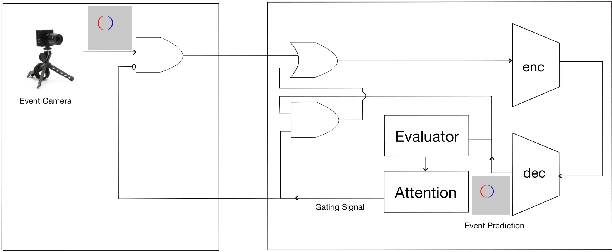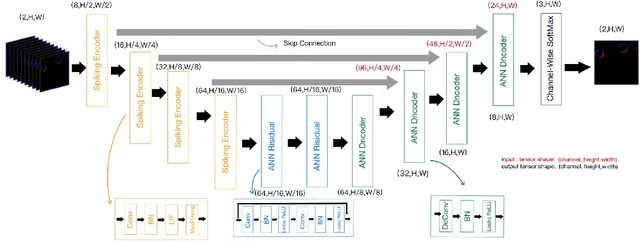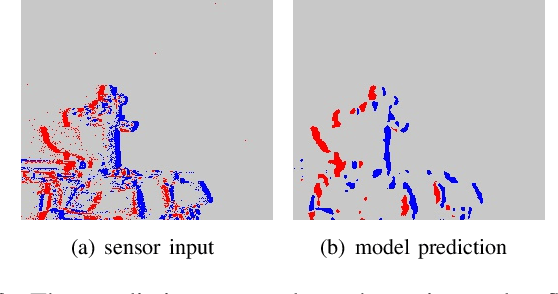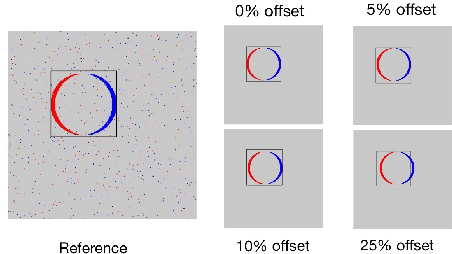Yiming Bu
Predictive Temporal Attention on Event-based Video Stream for Energy-efficient Situation Awareness
Feb 14, 2024



Abstract:The Dynamic Vision Sensor (DVS) is an innovative technology that efficiently captures and encodes visual information in an event-driven manner. By combining it with event-driven neuromorphic processing, the sparsity in DVS camera output can result in high energy efficiency. However, similar to many embedded systems, the off-chip communication between the camera and processor presents a bottleneck in terms of power consumption. Inspired by the predictive coding model and expectation suppression phenomenon found in human brain, we propose a temporal attention mechanism to throttle the camera output and pay attention to it only when the visual events cannot be well predicted. The predictive attention not only reduces power consumption in the sensor-processor interface but also effectively decreases the computational workload by filtering out noisy events. We demonstrate that the predictive attention can reduce 46.7% of data communication between the camera and the processor and reduce 43.8% computation activities in the processor.
 Add to Chrome
Add to Chrome Add to Firefox
Add to Firefox Add to Edge
Add to Edge